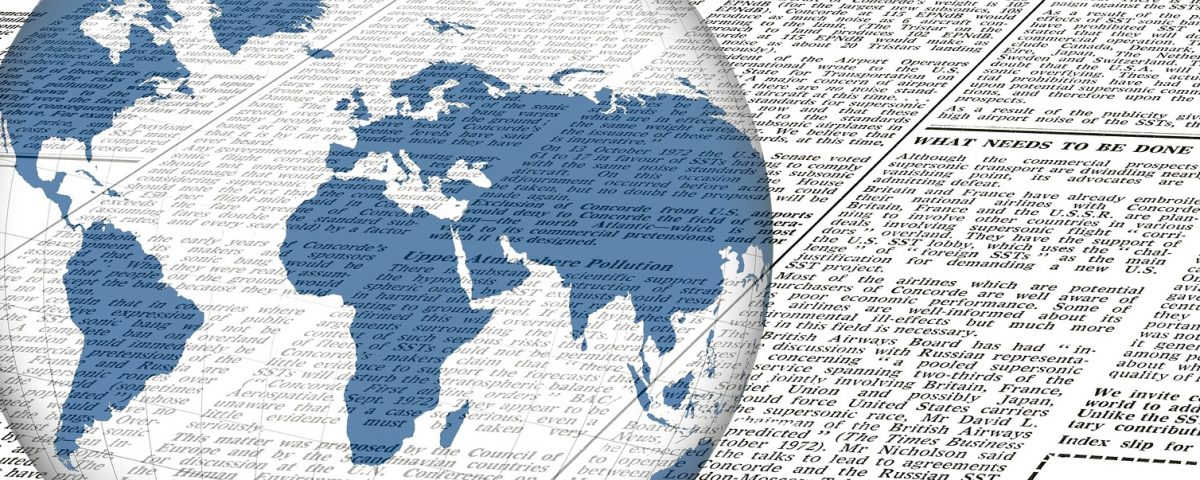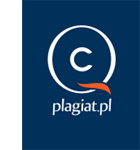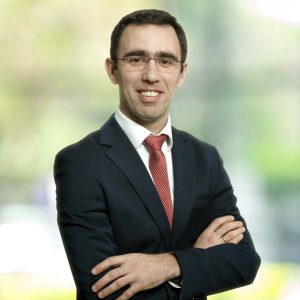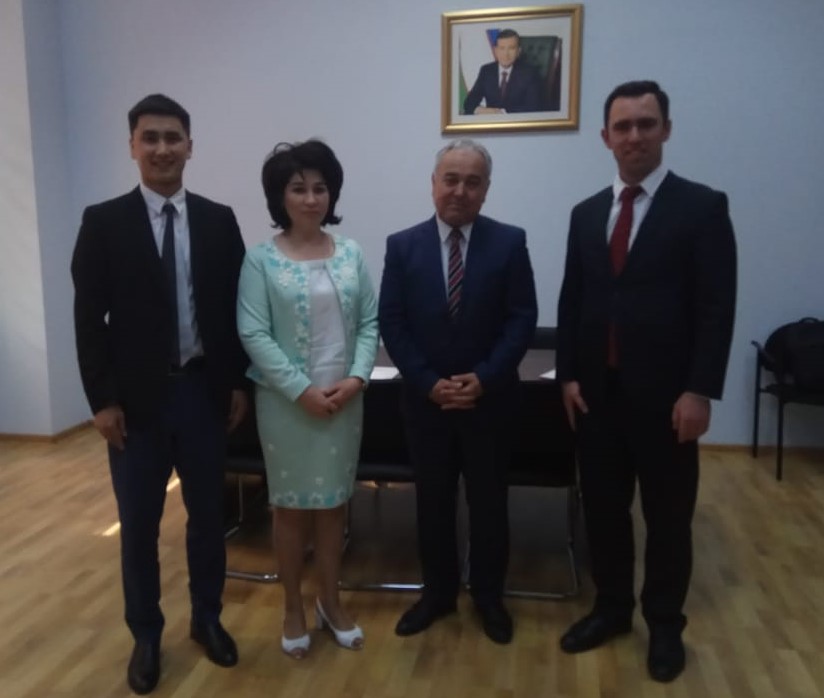Azerbaijan begins the fight against plagiarism in the education system

Plagiat.pl extends cooperation with a Minister of Education and Science of Ukraine
26 stycznia 2018
Georgian universities are starting to use Plagiat.pl’s antiplagiarism system
19 lutego 2018Azerbaijan begins the fight against plagiarism in the education system

We encourage you to read the interview, which Ali Tahmazov, the Executive Director for International Market, gave the Azerbaijani newspaper .
Tell us a little about your company. With which Azerbaijani universities you cooperate? What services do you provide to them?
Our company was founded in 2002 in Poland, in Warsaw by four specialists in the field of IT-technologies, two of them are professors. For 15 years of the company’s activity, we managed to prove the importance of fighting against plagiarism in education. At the moment the company has offices in 6 countries, operates in 12 countries, only in Poland more than 200 universities cooperate with us. In Azerbaijan, we started our activity as a branch in 2015. The company’s activities are aimed at providing services to search for borrowings in various available sources through the system . Also consulting on the implementation of antiplagiarism procedures for checking and evaluating student and scientific papers for the presence of plagiarism.
Our other important product is the ASAP (Archiving Solution for Academic Papers) which automates the antiplagiarism process. Azerbaijan was the first country in the former Soviet Union with which we started the way to the East. We cooperate with half of the universities of Azerbaijan. The first in the fighting against plagiarism we were supported by Azerbaijan University of Tourism and Management, Azerbaijan State Oil and Industry University, Azerbaijan State Economic University, Azerbaijan Technical University, Khazar University and others.
But as in any country wherever we work it would be impossible to realize our mission without the support of the Ministry of Education. The administration of the Ministry and many universities are well aware of the seriousness of this problem that without joint and comprehensive efforts it can’t be overcome. Plagiarism, like cancer, went deep into the consciousness of society and there is no clear idea of what it is and why it is bad.
What is the situation with plagiarism in science in Azerbaijan?
As we know, plagiarism is of several kinds, where the two are the main ones – it is a plagiarism of ideas and plagiarism of text fragments. In science, there is a plagiarism of an idea with which none antiplagiarism system can cope. Experts should be involved to understand the novelty of the idea and the antiplagiarism system helps them to simplify the analysis process.
In the CIS countries, there was a wave of reformatting science and cleanse it from bureaucracy and sovietism giving wide autonomy and responsibility to the universities themselves to decide who to award scientific degrees to and who doesn’t. Even in Russia, 19 universities were given the opportunity to provide scientific degrees themselves realizing that it is impossible to develop further. Unfortunately, this process didn’t go in Azerbaijan. Azerbaijan has not moved to the PhD-system but this would solve many problems.
We have been offering the Higher Attestation Commission for two years our assistance in implementing complex measures to fight against plagiarism, the creation of a depository of doctoral dissertations, the integration into a common network with university repositories. It would also be correct if HAC published dissertations on its website. We were pleased to learn that the HAC of Azerbaijan uses an antiplagiarism system that in effect is engaged in rewriting, copies the papers of some authors and sells them to others doing it openly on their website. We have great respect for the administration of the Higher Attestation Commission and we hope that they will not leave this situation without attention.
The root of the problems of plagiarism in science lies in the system of privilege, the mentality of society. In Azerbaijan, just like in Romania or Bulgaria, scientists are prestigious and profitable financially. There are appropriate additions to the salary in Romania. Without a scientific degree, it is difficult to advance in politics. But the mechanism of demand from scientists, unfortunately, is missing.
What, in your opinion, prevents to improve academic integrity?
Mainly the absence of an appropriate legal framework. We have good legislation in the field of intellectual property protection. The Copyright Agency of the Republic of Azerbaijan is active in the country, highly qualified specialists work there. The Agency hosted in April 2016 a „round table” on academic plagiarism, where there was an open discussion, and the university rectors shared the experience and technologies used in the fight against plagiarism. I don’t remember any Copyright Agency of the EU, which wanted to assist this mission.
In spite of the existence of intellectual property protection in Azerbaijan, the concept of plagiarism has recently entered to the “Education Act” of Azerbaijan. An amendment was adopted to the law “On Education” in all EU countries, including Russia, requiring to begin the universal verification of student works on plagiarism, using the information technology, responding to the certain minimum standards. Minister of Education Mikail Jabbarov raised the issue of fighting with plagiarism many times, there are also the relevant decrees, and even one rector was reprimanded.
I think that Azerbaijan requires appropriate by-laws, decrees, decisions on which the rectors could rely. Another important factor is the lack of a Code of academic integrity, not the application of disciplinary measures, and the weak application of information technology in the academic process.
What norms and procedures are used to combat with plagiarism? What would you recommend?
The procedures for evaluating and verifying student work for plagiarism are fairly simple, but they must necessarily prevent a conflict of interest. For example, at least two people, a supervisor and a reviewer, should evaluate the student’s work. Commissions that evaluate the work for plagiarism should be as objective as possible. Of course, it is required to give the student a second chance, because students, as a rule, make mistakes unconsciously. And most importantly is to work with students and teachers. Explain to them the notion of copyright and how to work with the information.
Some years ago Professor Madrai from the University of Long Island conducted an extensive study on the impact of training on students of different courses. As a result of this study, it became apparent that those students, who were explained the correctness of the information citations, forms of plagiarism and disciplinary measures in the first year, showed much better results at the end of the training.
It is necessary to check all of the works, not an election, as in some universities of Azerbaijan. We hold seminars for students and teachers in each partner university in Azerbaijan at least twice in a year, we’re explaining to them the concept of plagiarism, the methodology of work evaluation. I think that all universities of Azerbaijan should conduct such work.
How do they struggle against the plagiarism in EU, Poland, and CIS countries?
The struggle against the plagiarism has not stopped all over the world, but the tools of this struggle have expanded at present, as the penetration of the Internet into the academic sphere. Students and scientists have stopped going to the reading rooms, all the necessary information can be found on the Internet now. There were appeared the well-organized companies, which are ready to „write” work for the author on any topic. Such companies are called as „mills of scientific works”. They produce student works, theses and sell them on the Internet.
The turnover of such mills is currently estimated at several billion dollars in a year. Similar mills are also found in Azerbaijan, such firms have been seen near several universities. Some universities struggle with them because they do not want the name of the university to be associated with dubious personalities. Other universities close their eyes to this, claiming that there is no plagiarism at their university. There have been cases when teachers write works for students and dissertators and sell them. Such facts are found in the EU too, but very rarely. They passed the laws, providing the administrative punishment for theft of someone else’s intellectual work in all countries of the EU. For example, our company is invited to the court for the examination and the report of our anti-plagiarism system is used as the evidence of the borrowing fact in Poland. Legal entities, involving in the manufacture of fake student and scientific works are subject to criminal penalties. So-called “free” Russian anti-plagiarism system are very common in the CIS countries, which, among other things, offer to write the work for the author on any topic on a fee basis. In fact, they are not an anti-plagiarism systems, they are those mills that steal from those authors who upload their work for verification and then resell these works to the other authors for very solid means. Due to the legal vacuum in Russia, these systems are not struggling in any way, although they pose a huge danger for every careless student, graduate student. Because, one day their work can pop up, maybe not completely, but partially and he, being a very important person or a scientist will bear the brand of a thief for the rest of his life.
There are strict laws on consumer protection in the EU, therefore all personal data must be encrypted on the part of the company without fail, the dissemination of data without the owner’s permission entails the criminal liability. There are public organizations in the EU countries, in Russia and Ukraine, such as Dissernet (Russia), Dissergeit (Ukraine), who also struggle against the plagiarism in theses of politicians, officials, and scientists, rightfully asserting that a thief cannot be scientist or politician. Such organizations are very important for the public health.
What are disciplinary measures used by universities in EU countries and in Azerbaijan in case of plagiarism?
As a rule, the measures that used in punishing of students are an exception from the university in the EU countries, and the administrative punishment can be used because of the theft of intellectual labor in the case of plagiarism in scientific works. But all of these are connected with the legal base and the internal procedures of universities, as well as with the economic component. Azerbaijani universities don’t exclude the students, but they give the second, in some cases, the third chance to correct their work. As I have mentioned before, not all students are “plagiarized” consciously. The university carries an educational function, but it is also impossible to turn the defense of dissertations into the absurdity.
A similar situation in all CIS countries. In Georgia, where is the less corruption at universities, they consider that there is a little plagiarism in universities, forgetting that the plagiarism is not always connected with the presence of corruption. That’s why they have recently decided to open this Pandora’s Box in Georgia. Poland and Romania are also decided to make the minimum standards or anti-plagiarism systems, which they recommended for use, as it turned out, that after the enactment the requirement for mandatory verification, many universities were engaged in imitation. The minimum standards include the presence of an interface in the local language, the recognition of the local language, the protection of the personal data, the creation of a database for the university by the company that provides the anti-plagiarism services etc.
What negative factors did you encounter in the universities of Azerbaijan?
It turned out that some universities acquire anti-plagiarism services, but do not fully use it. It happens, they decide not to check all the masters’ works for some reason, but only a part of them, or they decide to check the masters, and not to check the diploma theses of bachelors. Some universities use so-called „free” services. There are universities that do not punish their students but allow to miss the unlimited number of times through the system of antiplagiarism in order to “bring” them to the required level of originality.
Recently, in one academy, the vice rector for science openly stated that they are not the kind of university that can go down to struggling against the plagiarism. And there is an employee in another university, who “cleans” the work for a fee, which then goes to the defense in VAK. Some universities, for some reason, are trying to make money on anti-plagiarism, for recouping their expenses for plagiarism. Can you imagine? We do everything for not involving us in the “gray” schemes.
How do the plagiarism and academic dishonesty affect the quality of education? And how does the plagiarism affect the competitiveness of the economy?
Plagiarism, like a cancerous tumor, demoralizes the academic environment, which must be clean from the theft, as the backbone of society. The student cannot receive the diploma if he is not able to write a thesis or master’s thesis. A person who has stolen his scientific work cannot heal us. How can we be judged by a judge who stole his work from a colleague? How can science develop if scientists steal works from the Internet, translating from other languages? The ratings of universities are weak for many reasons, one of them is plagiarism. There are many cases when very capable children from the CIS countries were expelled from universities because of the plagiarism in the US, Germany, Canada. When they asked why you did it, they explained: „It’s normal for us”. The country needs creative specialists, they cannot be grown on plagiarism.
Are you planning to expand the cooperation in the Azerbaijani market?
We offered the Institute of Education under the Ministry of Education of Azerbaijan the idea of conducting a sociological survey on the issue of academic honesty in the universities of Azerbaijan. Similar studies have been conducted with our support in Poland and Romania, we are also preparing in Ukraine. The study will not tell the names, but it will show what kind of trends the society has faced in the matter of academic integrity in Azerbaijan to a new level. Recently, they proposed to the Ministry of Education of Azerbaijan to hold a conference on the use of corporate governance in university managment, similar to the one that was held in Warsaw in May 2017 with the support of the Ministry of Higher Education and Science of Poland, the Council of Rectors and our company.
The expansion of our activities directly depends on how the academic community is ready to struggle against the plagiarism. We are happy to help and continue to do our best. We have recently applied to the Baku City Department of Education, Ms. Mahabbat, and we really hope for her understanding and assistance in the implementation of the joint pilot project to check school works for plagiarism.
We hope for an understanding of the importance of cooperation and are ready to support the Higher Certification Commission of Azerbaijan in the issue of creating a database of dissertations and a comprehensive examination of dissertations for plagiarism. Plagiat.pl also significantly expanded the geography of its activities in Africa, the Balkans, and Turkey. China is also in our plans. I would like to thank the Ministry of Education, university rectors and many others who believed in us and supported our mission.
The interview originally appeared here:



